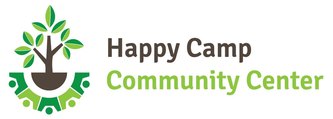|
Traumatic events have a profound sensory impact on young children. Their sense of safety may be shattered by frightening visual stimuli, loud noises, violent movements, and other sensations associated with an unpredictable, frightening event. The frightening images tend to recur in the form of nightmares, new fears, and actions or play that reenact the event. Lacking an accurate understanding of the relationship between cause and effect, young children believe that their thoughts, wishes, and fears have the power to become real and can make things happen. Young children are less able to anticipate danger or to know how to keep themselves safe, and so are particularly vulnerable to the effects of exposure to trauma. A 2-year-old who witnesses a traumatic event like his mother being battered may interpret it quite differently from the way a 5-year-old or an 11-year-old would. Children may blame themselves or their parents for not preventing a frightening event or for not being able to change its outcome. These misconceptions of reality compound the negative impact of traumatic effects on children's development.
Young children who experience trauma are at particular risk because their rapidly developing brains are very vulnerable. Early childhood trauma has been associated with reduced size of the brain cortex. This area is responsible for many complex functions including memory, attention, perceptual awareness, thinking, language, and consciousness. These changes may affect IQ and the ability to regulate emotions, and the child may become more fearful and may not feel as safe or as protected. Young children depend exclusively on parents/caregivers for survival and protection—both physical and emotional. When trauma also impacts the parent/caregiver, the relationship between that person and the child may be strongly affected. Without the support of a trusted parent/caregiver to help them regulate their strong emotions, children may experience overwhelming stress, with little ability to effectively communicate what they feel or need. They often develop symptoms that parents/caregivers don't understand and may display uncharacteristic behaviors that adults may not know how to appropriately respond to. Symptoms and Behaviors As with older children, young children experience both behavioral and physiological symptoms associated with trauma. Unlike older children, young children cannot express in words whether they feel afraid, overwhelmed, or helpless. Young children suffering from traumatic stress symptoms generally have difficulty regulating their behaviors and emotions. They may be clingy and fearful of new situations, easily frightened, difficult to console, and/or aggressive and impulsive. They may also have difficulty sleeping, lose recently acquired developmental skills, and show regression in functioning and behavior. Children aged 0-2 exposed to trauma may
Children aged 3-6 exposed to trauma may
Protective Factors: Enhancing Resilience The effects of traumatic experiences on young children are sobering, but not all children are affected in the same way, nor to the same degree. Children and families possess competencies, psychological resources, and resilience--often even in the face of significant trauma--that can protect them from long-term harm. Research on resilience in children demonstrates that an essential protective factor is the reliable presence of a positive, caring, and protective parent or caregiver, who can help shield children against adverse experiences. They can be a consistent resource for their children, encouraging them to talk about their experiences, and they can provide reassurance to their children that the adults in their lives are working to keep them safe. If you are in need of mental health support stop by the Community Center, we are located at 38 Park Way in Happy Camp. We are open Tuesday-Thursday from 9am-4pm, closed for lunch from 12pm-1pm. The Community Center contracts with Siskiyou County Behavioral Health and we can refer you to their services. For the 24 Hour Mental Health Crisis Line/ Access Line, Toll Free: 1-800-842-8979 For this Article and more information visit: www.nctsn.org/what-is-child-trauma/trauma-types/early-childhood-trauma/effects
0 Comments
Leave a Reply. |
AboutHappy Camp Community Action, Inc. is a Non-profit organization dedicated to economic development and youth programs in Happy Camp, California and surrounding communities. Archives
January 2020
Categories |
SERVICES |
Company |
Apart from the free survey software, we also have access to QuestionPro's free survey templates. We've
found many of them useful and powerful to collect insights from various stakeholders of our organization |
